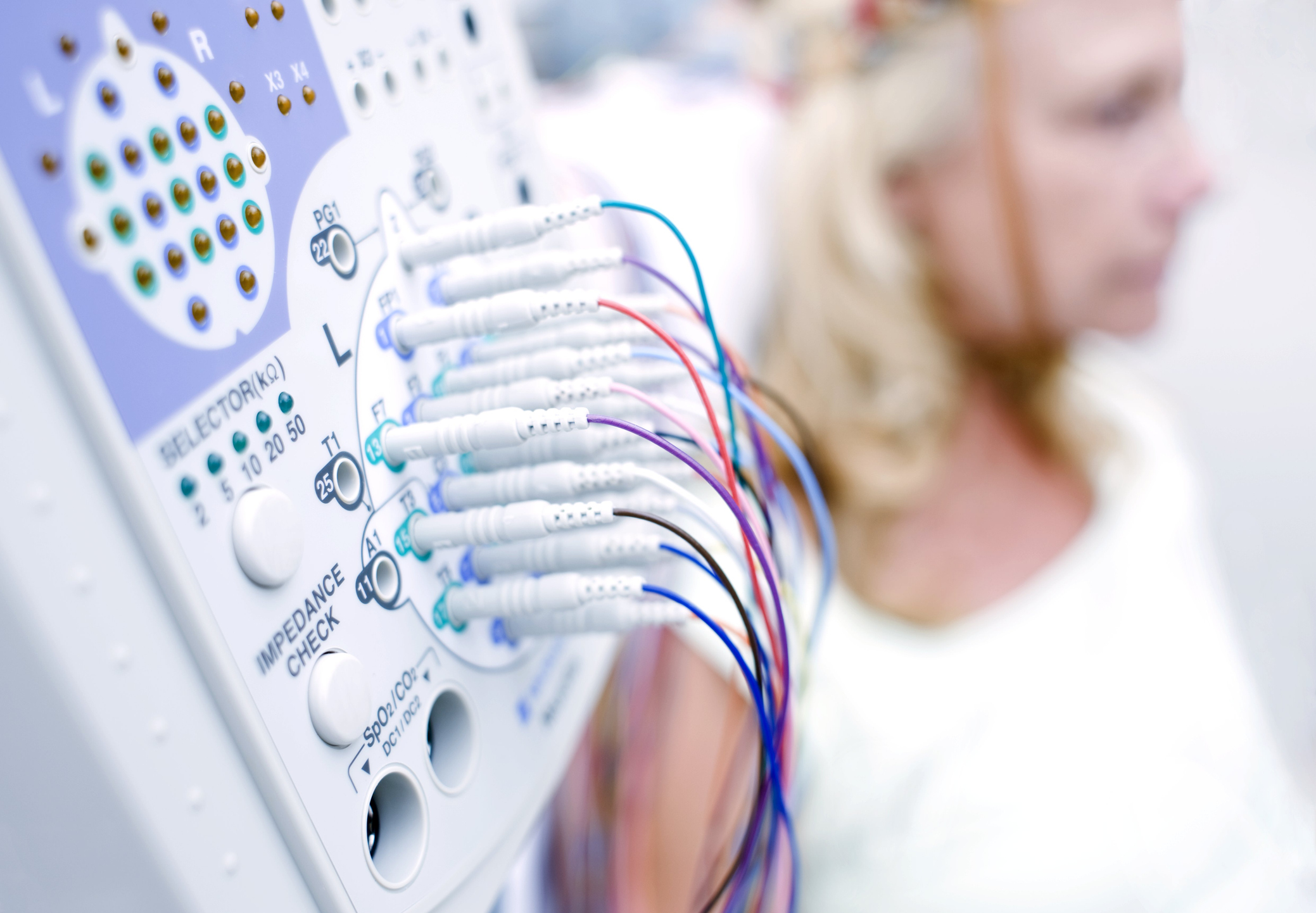
EEGs
An electroencephalogram (EEG) measures the brain's electrical activity to give information about neurological conditions, including seizures, dementia and strokes.
EEGs are noninvasive, painless tests that can be done at Pelham Medical Center or at Spartanburg Medical Center - Mary Black Campus.
Using electrodes attached to the scalp, EEGs read brain wave patterns created when neurons communicate with each other. EEGs can measure the brain’s electrical activity through tissue, bone and the skull. EEGs will not shock you or hurt you.
Epileptic seizures are one of the most common reasons a healthcare provider would order an EEG. The only type of seizure that interrupts the brain’s electrical activity is an epileptic seizure. Seizures that occur for reasons other than epilepsy will not register on an EEG. If EEGs reveal that someone is experiencing nonepileptic seizures, neurologists and other specialists will look for another cause.
Conditions evaluated with an EEG
Your healthcare provider may order an EEG to gather real-time information about:
- Brain damage caused by drug use
- Dementia and Alzheimer’s disease
- Epilepsy
- Fainting and dizziness
- Sleep disorders
- Strokes
- Traumatic brain injuries and concussions
- Tumors
EEGs are also necessary to study brain activity if someone is in a coma.
Preparing for an EEG
You will receive detailed instructions when you receive a call to schedule your EEG.
Please wash your hair the night before the EEG test but do not use conditioner or other products on your hair. They make it harder for the electrodes to stick. Also, hair weaves can make it difficult to attach the electrodes.
You may need to stop taking certain medications before your test.
Your EEG exam
Once you check in, we will begin the process of applying the 26 EEG electrodes. A tech will attach them to your scalp, forehead and temples with a special glue that will wash out easily after your exam.
We will also apply EKG electrodes (that track heart electrical impulses) to your chest to monitor your heart.
If you come to Spartanburg Regional for your EEG, we will also use video cameras to monitor you. EEGs can take as little as 30 minutes or up to three hours, depending on what information the doctor needs to make a diagnosis.
Choosing Spartanburg Regional for your EEG
When your doctor recommends a neurological test, such as an EEG, we understand you may feel anxious and unsure about what to expect. Our friendly, understanding staff will explain the procedure and help to put you at ease.
A neurologist will read your results, which are usually available to your doctor in about 24 hours.












